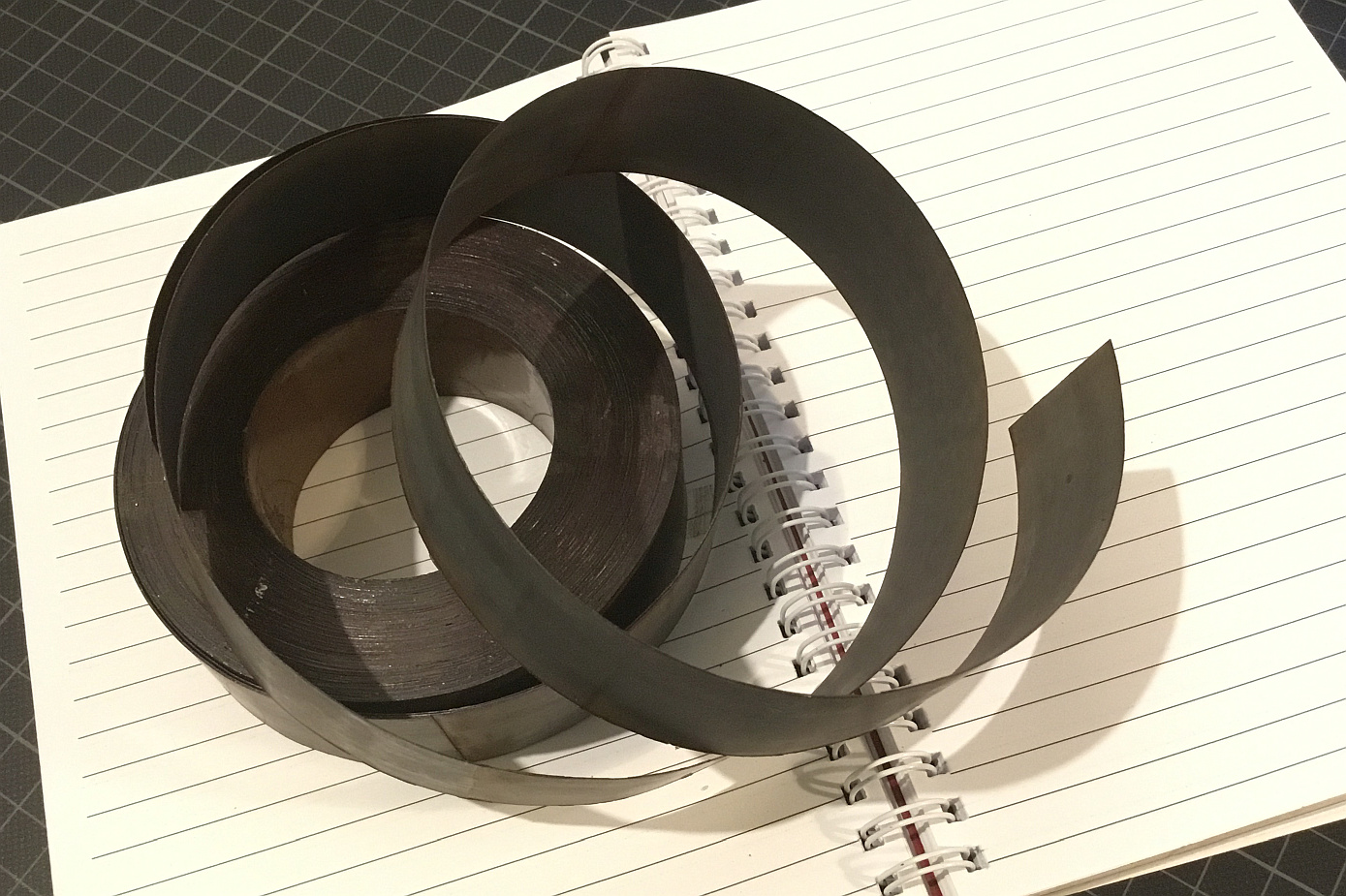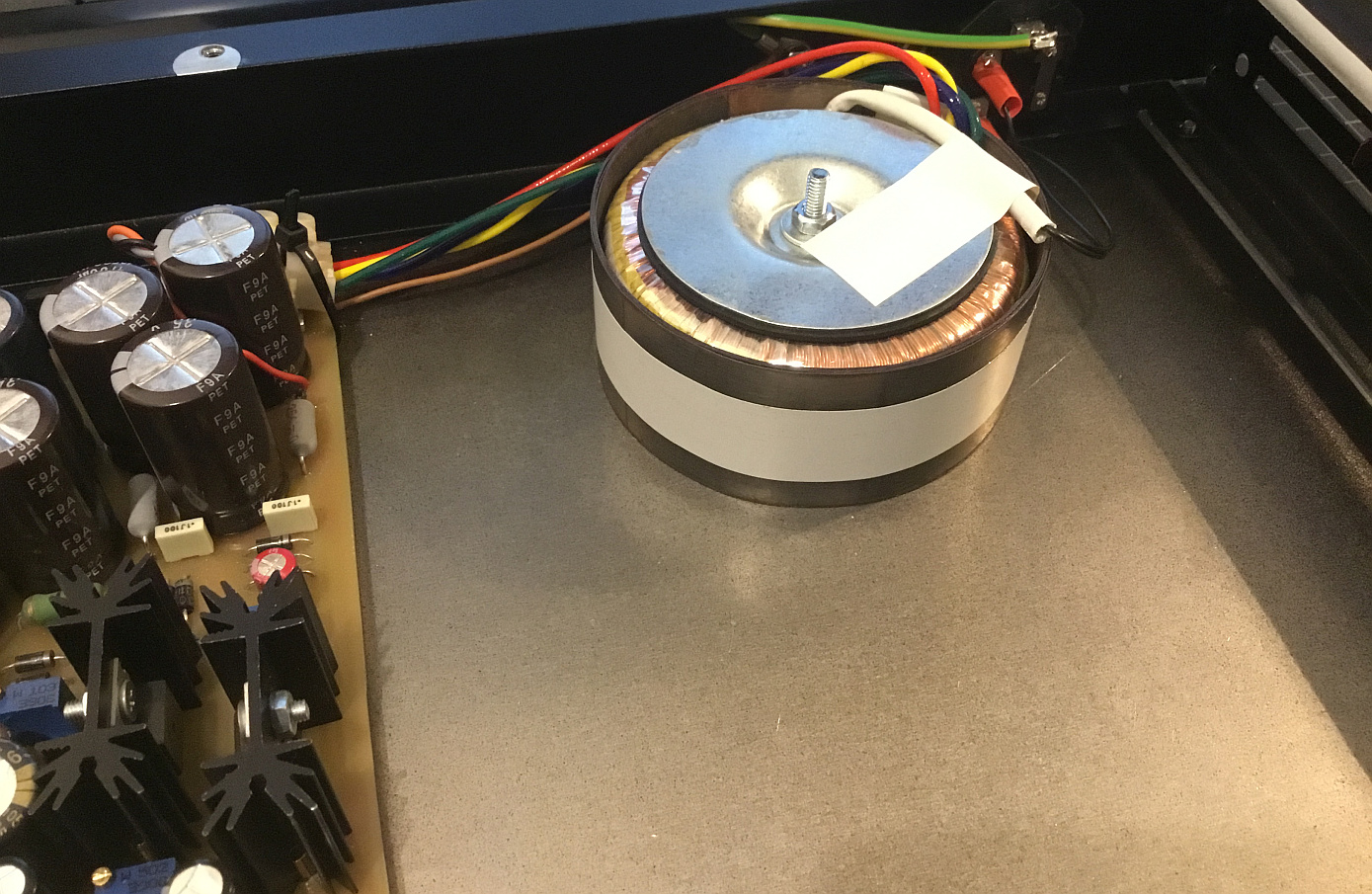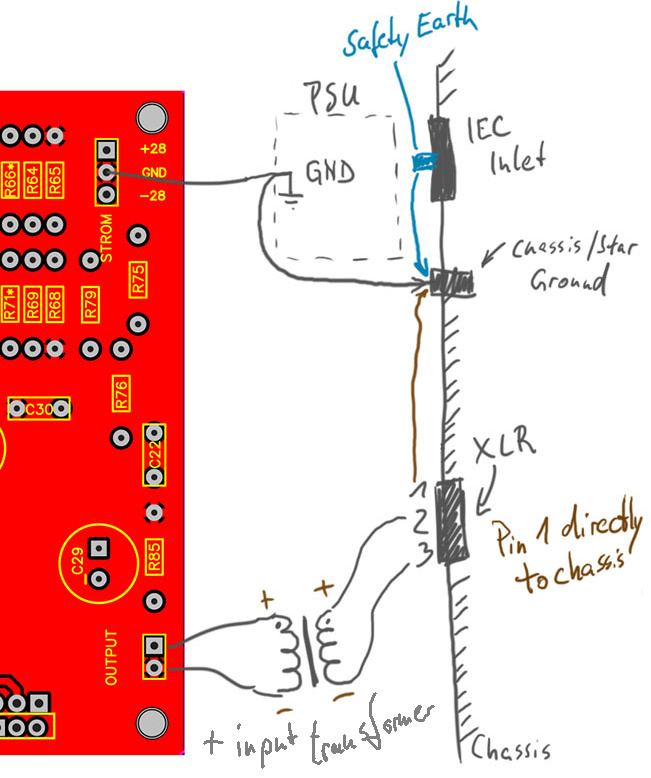ToBSn said:Hi andow,
no pm received here. I have to check if there are some left.
i would be also interested!!
ToBSn said:Hi andow,
no pm received here. I have to check if there are some left.
electrisizer said:hey, ive finished the beast and to my ears it sounds great
some notes:
lundahls in/out - imho recommandable
putting the PSU external eliminated all PSU related noise (eg 60hz hum)
zener diodes from RND components are really low tolerance zeners (ive got matched ones pretty fast)
soundwise its an agressive compressor with alot of color/thd, similar to rev A 1176 but more classy sounding
thx fripholm!!!
here's some audio:
https://www.dropbox.com/s/lom2ky1wh3imow2/zener%20drums.mp3?dl=0
perhaps ill order a cnc engraved panel, mine looks very DIY
electrisizer said:putting the PSU external eliminated all PSU related noise (eg 60hz hum)


andow said:I'm in the middle of wiring my Zener Limiter and I'm wondering why there is no pad on the PCB to connect the input ground?

fripholm said:The input connector's pin 1 (if using XLR) usually goes directly to chassis ground which is then connected to PSU GND and from there to the power supply connector on the limiter board.
As I have the I/O transformers on a separate (perf) board, these transformers share the same ground connection coming from the output connector on the main PCB.

Potato Cakes said:Which Zeners are you using? I went through several batches from different manufacturers/vendors and all of the 1N751s that I tried were way too noisy. I swapped them out with 1N5231s and the noise is a non issue now, and I didn't have order from a bunch of different sources to find some that worked. I would recommend doing the same if you are struggling to find 1N751s that have a usable noise level.
Thanks!
Paul
andow said:Thanks for the reply! I'm using 1N751 Central Semiconductor from Mouser and these are unusable. Did you notice any difference in sound between 1N751 and 1N5231?
andow said:Did you notice any difference in sound between 1N751 and 1N5231?
Potato Cakes said:With the noise being so bad with the 1N751 I didn't make any comparisons. I did note in my earlier post that this unit sounds like a similar Chandler unit I rented years ago. I don't know how it compares to an original (as I don't have one). It is a different character than the other compressors have.
Thanks!
Paul
fripholm said:Have you tried bigger resistors, 47 or 100 ohms? Sometimes also a small ceramic cap from output to ground can help - like 100pF or so.
You may have done this already, but diligently compare the output stages of both boards for any unintended differences and - if possible - try swapping their position in the chassis to see if the other one starts to oscillate.
fripholm said:As you are using a 4:1 input (why?) it would make sense to use a 1:2 output transformer. The output stage is certainly beefy enough to drive the higher load.
When calibrated correctly, the compressor stage alone should have a gain of about -3 to +6dB and the output stage provides +25dB with the output control maxed.